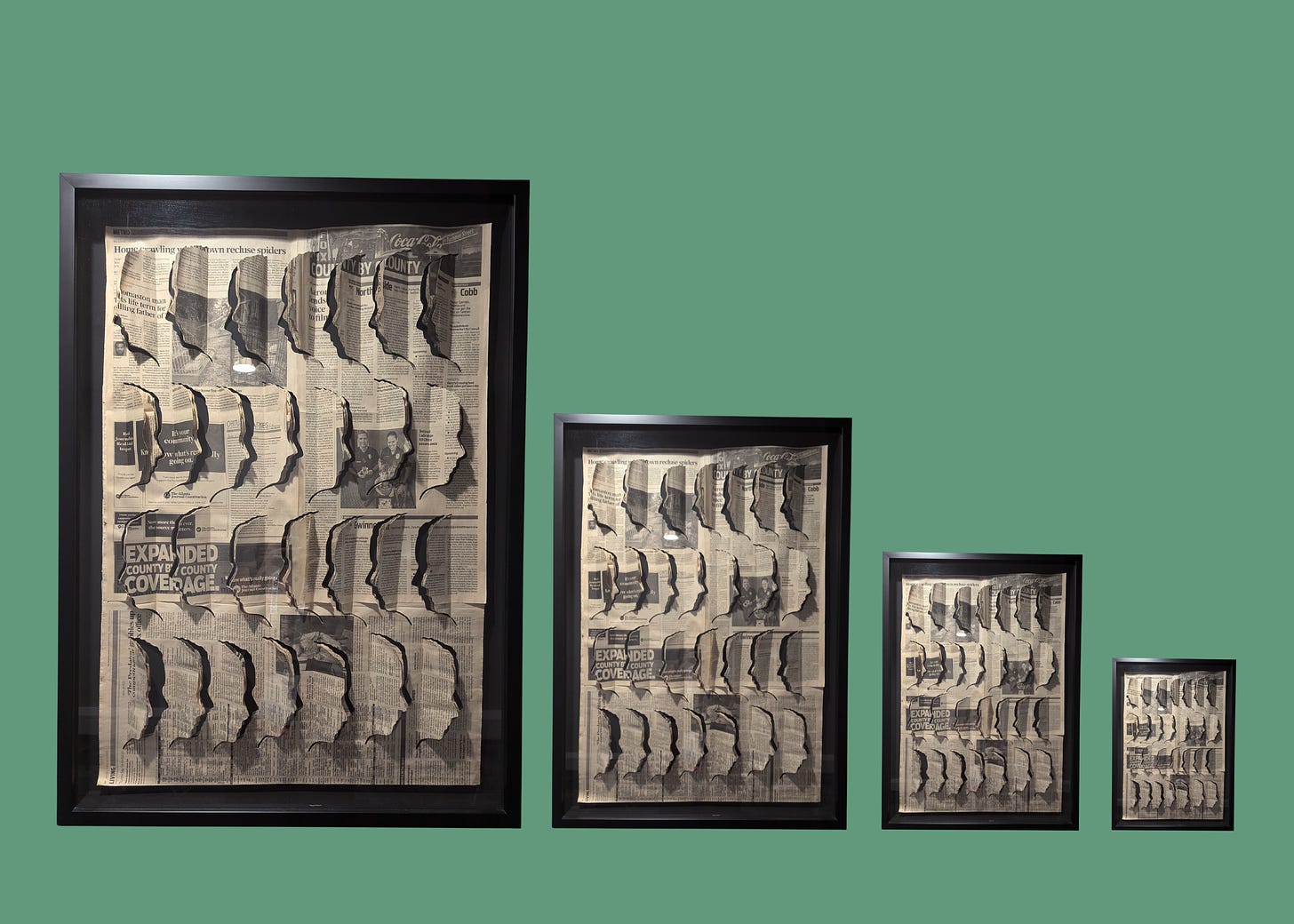This week I planned to mail you a snarky little essay from Atlanta, where I descended into several cavernous, subterranean hotel ballrooms to learn about the future of online journalism. Alas, while I have indeed drafted such an essay, I feel no joy about sending it.
Yes, 13 sessions did concern AI, and all of them sounded enthusiastic. Yes, Canva sponsored a slick, uplit “lounge,” complete with bookshelves and giant houseplants. Yes, I nodded through a long verbal pitch for a nascent “news-based dating app” — and yes, its founder did assure me that his little app would meaningfully impact the misinformation crisis.
At the end of the day, however, the annual Online News Association Conference — a typically boozy, boisterous, glad-handed gathering of people who work in or study online news — doesn’t really deserve my derision, no matter how well-earned. I’m just not a good judge of the event. I wasn’t this year, at least. I last attended ONA in 2011 and 2012, and the vibe shift between those years and this one disoriented me.
“Is it just that we’re getting old and cynical?” I asked a like-minded friend over rubbery hotel breakfast sandwiches. “Or has this gotten kind of weird? Like — the internet sucks now, and we all know that, but no one’s really ready to acknowledge it.”
It was weird, my friend agreed. But also: We are getting old. And so maybe we’re just primed to see patterns now, to tense for disappointment where others still see potential.
Here’s one brief example I’ll salvage from my earlier, snarkier draft: a packed-to-the-gills breakout panel on “winning” search and social as those platforms deprioritize news content. Many things have changed since 2012, but this — to me — seems like a doozy: The internet giants that once buoyed an entire generation of new media sites have beat a fast retreat from the mess and fuss of the news industry. Meta, for instance, has throttled the reach of news on its platforms. Google traffic has lately “fallen off a cliff” for hundreds of publishers.
Thus it was no great surprise when I got to the dim, low-ceilinged conference room two floors underground and saw overflow viewers sitting cross-legged on the floor or huddling around the two entrances. But if they expected a brave manifesto on the post-search/social future, they instead got some tips on news SEO and a fervent entreaty to **immediately** “invest in social video.”
In other words, to staunch the wounds that search and social platforms inflicted on media organizations, newsrooms should tithe yet MORE time, money and effort over to them.
“Well … no one wants to hear that there isn’t a solution,” one audience strategist told me afterwards. “But yeah, I think they might have over-promised a little bit on that one.”
And that’s why I can’t write about ONA. Because the more time I spent in those windowless hallways, breathing that recycled, conditioned air, the more I kind of began to feel that “over promises” defined the first decade of my career. In 2012, when I last donned this dumb lanyard, I still capitalized the word “Internet.” I nursed fierce, silent crushes on other attendees, based solely on their hyperactive Twitter presences.
But *you* were online in 2012. You remember what it was like then. Vine and Medium launched that year; Facebook bought Instagram and went public. Ben Smith, lately of Politico, was building a newsroom at Buzzfeed. I had a Tumblr and a Foursquare and a job interview with some newfangled “social reporting” team.
My problem, you see, is that my view is too long. I can’t get excited about TikTok or Shorts; I was here for the industry’s first pivot to video (... and the second one! And the third.) “Internet” is simply “internet” now. Twitter, which I loved, has since soured to X. My ONA friends have, in many cases, become marketers and publicists.
That makes ONA unnerving for me — a conference overshadowed by its own hopeful past. Or maybe I’m talking about myself alone here, and the “off” vibes reflect my disillusionment.
Either way, I don’t expect TikTok — or AI — or dating, ffs — to safeguard the “future” of online news. But feel free to call me on that in 12 years if it ends up being true. 🫠



Just the words "pivot to video" make me feel exhausted
My online journalism career started in 1999 and ended in 2017 when I got laid off. And then I went on to become a marketer and publicist. So yeah everything you wrote sounds about right…